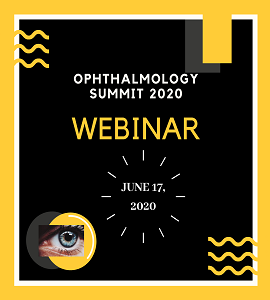Dongyu Guo
Zhejiang University School of Medicine Hangzhou, China
Title: Effects of virtual reality training on visual function
Biography
Biography: Dongyu Guo
Abstract
Objective: To evaluate the effects of virtual reality (VR) trainingon visual function.
Methods: Individuals with healthy eyes admitted to the First Affiliated Hospital of Zhejiang University and Shulan Hospital from November 2018 to June 2019 were divided into the short-term group (n = 40) and the long-term group (n = 20). They were given specially designed VR training devices only oncefor 15 minutes or 3–4 times a day for 15 minutes each time for one month. The changes in visual acuity, diopter, accommodative range, accommodative facility, pupil size, and visual fatigue were assessed before and after the test.
Results: After the use of the VR device for 15 minutes, the distant vision improved by-0.09 (95% CI, -0.12–-0.06,P< 0.001), the corrected visual acuity improved by-0.04 (95% CI, -0.06–-0.02, P< 0.001), the accommodation range increased by 0.41 (95% CI, 0.11–0.71, P = 0.008), the accommodative facility increased by 1.29 (95% CI, 0.84–1.74, P< 0.001), and the pupil contracted by -0.34(95%CI, -0.46–-0.22, P< 0.001). No changes were observed in the spherical equivalent diopter and the visual fatigue scale between the groups. The changes in distant vision (r = 0.361, P< 0.01) and corrected visual acuity (r = 0.516, P< 0.01) were positively correlated with the changes in the pupil size, but not with the changes in the spherical equivalent diopter (P> 0.05).After the use of the VR device for one month, the accommodative range improvedby0.69 (95% CI, 0.26–1.11, P< 0.01) and the accommodative facility improvedby 0.90 (95% CI, 0.45–1.35, P< 0.01); both parameters were markedly improved compared with before use. There were no significant changes in the distant vision, corrected vision, spherical equivalent diopter, pupil size, and visual fatigue (P> 0.05).
Conclusion: VR training can improve the accommodative range and facility. Although short-term VR training can transiently improve vision, due to pupil contraction caused by light adaptation, there is no evidence that it can improve myopia.

